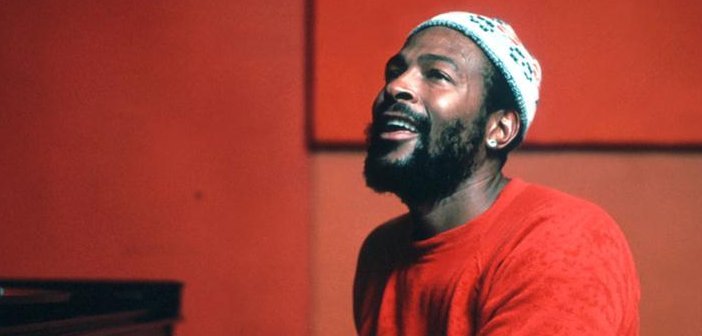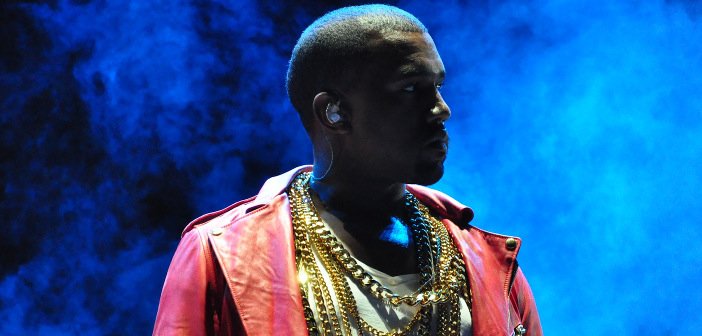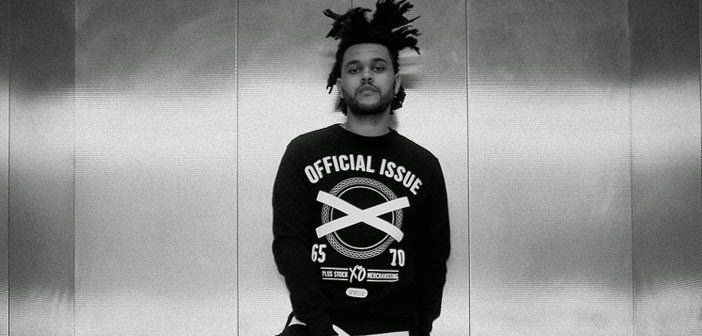This Ain’t That Prom Shit | The Glorious Rise of Noir R&B
“This that prom shit, this that what we do don’t tell your Mom shit, this that red cup all on the lawn shit, got a fresh cut straight out the salon, bitch.” – Kanye West, ‘Bound 2’
R&B used to be known as “Race Records”. Music made by black people, for black people. In 2015, R&B is no longer a minority genre. It occupies the mainstream today in as powerful a way as rock ever did. So confident has this genre become that it is capable of absorbing and appropriating any number of influences and still retain its character. Whether these influences come from the drug culture of rock or the beats of electronic music, R&B remains uniquely itself. R&B is open-hearted performance; fearless expression that leaves all insecurities aside. R&B is sex music. R&B is love music. R&B is late night dancing music. Having spent much of my life in a state of uncertainty, anxiety and general emotional confusion I find great comfort in the immediate humanity to be found in R&B. It is essentially a genre that deals in physical reality. The basic functions of the human body are exalted, as are those brave enough to address these functions directly. Dancing, sex and love are the basis of almost every R&B song in existence.
Sometimes things get spiritual and veer into gospel territory. Many of the great R&B singers, past and present, got their start singing in a church. Sometimes things take on a political or moral flavour, as Curtis Mayfield was inclined to do. Many people who are otherwise ignorant and dismissive of R&B suggest What’s Goin’ On as a classic album simply because it contains both of these elements. It is a socially-conscious, politically-inclined work, something which the Rolling Stone crowd were taught to value. A message, no matter how basic or confused, was considered to be the work of a real, genuine artist. Bobby Dylan and Lenny Cohen told them so! Singing about sex and dancing all night was fine to consume, sure, but where were the hidden meanings and literary allusions?
People with causes and a penchant for beat poetry are given the benefit of artistic intent no matter the quality or content of the work, while people like Mariah Carey are seen as some kind of naturally occurring phenomenon. The quality of the voice, of performance, of consistent success is not seen as a sign of her talent or work ethic but rather just something that happened, untouched by the hands of an artist. Paul Simon thinking about South Africa means he’s an artist. Mariah Carey maintaining a FIVE OCTAVE RANGE is just because God did it.

If you were compiling a list of most influential black musicians you could do worse than naming James Brown, Stevie Wonder, Michael Jackson, Prince and R. Kelly. R. Kelly’s influence on R&B cannot be overstated. He is the most prolific and talented producer of his generation, a master of switching styles and capable of making hits for almost anyone. That he is disregarded so often is less to do with his legal problems – alleged underage sex and rape – and more due to a general snobbery from the Rolling Stone and Pitchfork crowd. While R&B has long been more than ‘Race Records’, it is hard not to view the consistent reduction of black musicians through the years as being racially motivated in some part.
What’s Goin’ On is indeed a classic album and one of Marvin Gaye’s best. Many use the record and Marvin Gaye, however, as an example of how modern R&B or other popular black music is artistically worthless. “Hey I like good R&B! Like Marvin Gaye! He didn’t just sing about fucking women all day!” Except he did. ALL THE TIME. On almost every album and song Marvin Gaye’s FIRST and often ONLY concern is when he will be able to go back to bed. Marvin Gaye was also vulgar, aggressive and obsessive. He wrote and recorded a song called ‘Savage In The Sack’. Yes, Savage In The Sack. This is ignored to prop up the idea that R&B is only legitimate when it imitates Rolling Stone-endorsed rock music.
It is an unfortunate reality that someone so talented as R. Kelly is such a fucked up human being, yet there he is somewhere on almost every R&B song in the past two decades. To understand anything about the genre, even today with its multitude of influences, you have to first understand R. Kelly.
[youtube id=”cYLMi8VEaCM”]
Take a listen to ‘Homie Lover Friend (Lookin For My Homie Mix)’, a love song that possesses surprising emotional depth. Perhaps his greatest production of the 1990s, it is meticulously crafted with a contemplative feeling. “That down to earth girl from around the way…” on the fade with those backing vocals conjures a purer feeling of love and hope in 15 seconds than a dozen verses of shiny words and turn of phrase.
As The Weeknd said in an interview with Complex in 2013:
“I’m a huge fan of R. Kelly’s. He’s a musical genius, and probably the most prolific artist of the generation before mine. Some of the lines he says, if you say them in a normal voice, it’s the most disgusting thing you could say to somebody. But I can say “Pussy-ass nigga” in the most elegant and sexiest way ever, and it’s accepted. If I can get away with singing that, I’m doing something right.
“All that ignorance on my records — “When she put it in her mouth, she can’t seem to reach my…” — that’s me paying homage to R. Kelly, and even Prince to a certain extent. The things R. Kelly was saying were crazy. You can say it now and it’s nothing, but back then you couldn’t.”
[youtube id=”yPwkzdYN4JE”]
This is essentially the barrier that people have with R&B. The sophistication in writing, production and performance in say, ‘Slow It Down’ by The-Dream, are missed by folks expecting a Joni Mitchell-style confessional who can only hear the line, “You can see her ass from a satellite”. ‘Slow It Down’ is, however, one of the most open-hearted, joyous and life-affirming songs of the last few years. It is an invitation to all human beings to discard their insecurities, to be brave enough to engage with other human beings on a basic, physical level, that dancing, sex and love are not things to be demeaned, or thought of as only appropriate for the lowbrow. ‘Slow It Down’ and R&B do not seek textual analysis but to evoke and amplify the feelings that surround essential human behaviour. R&B goes straight into that part of you that is fearless, loving and artistic. It is music that facilitates a human being taking their place in the world, that says emphatically get off the wall and get on the floor. If one has to examine the message of an R&B song, the point is probably already gone.
R&B nearly died between the years 2005 and 2008. While mainstays like Usher abandoned the genre in favour of making Cod-Dance music, R&B was propped up by a select few. R. Kelly would continue to produce quality. T-Pain would make autotuner the new talkbox and leave a lasting impression on pop music. Neither would succeed however in finding a new direction for R&B. Where others failed, the two people who succeeded are The-Dream and Kanye West. When The-Dream’s debut album Love Hate was released at the end of 2007, R&B was in crisis. Smothered by middle of the road material and turncoats like Usher, things were not looking good. While it is easy to hear ‘Shawty is Da Shit’ and think this dude is mad frivolous, the sounds on Love Hate and particularly on his masterpiece 2010’s Love King laid the groundwork for R&B making its return.
[youtube id=”oYorE2TSZ8M”]
Take a listen to the Prince-influenced ‘Yamaha’ and you might find it hard to stay still. This is what R&B is all about; making you want to dance as long and hard as is humanly possible. The-Dream worked on transforming R&B from an easily imitated joke into something serious music heads could get into. While he is hardly the gruffest fellow to sling a hook, The-Dream makes resolutely modern music. It is not a coincidence that Lou Reed wrote a glowing review of Kanye’s Yeezus. The two have much in common, including a reputation for being contrary as fuck. They also share an appreciation for making music that challenges expectations as much as it rewards repeated listening. If R. Kelly shaped the sound of 1990s R&B, Kanye West can take credit for shaping how the genre sounds in 2015. R. Kelly was the first major R&B artist to successfully crossover to rap and Kanye was the first major rap artist to do the same in reverse. You would not have people like Kendrick Lamar dropping a smooth melodic chorus on a song called ‘Bitch, Don’t Kill My Vibe’ or A$AP Rocky writing a love song to fashion. Hell, you wouldn’t have a rapper singing at all if Kanye hadn’t decided to stop rapping for 808s & Heartbreak.
[youtube id=”jfrenkSar8Y”]
Drake is perhaps the best example of someone who 10 years ago would have had to choose whether he wanted to be an R&B guy or a Rap guy. Now he can be both, often at the same time on one song. Before Kanye West, R&B was still considered by many Rap people to be a weak and feminine thing. By collaborating with the best R&B people of his generation, producing them, writing for them, and giving them guest spots on his best singles, Kanye opened up a dialogue between the genres that remains the most fruitful of their existence. A guy like Drake can record a new disco R&B classic with ‘Hold On We’re Going Home’ and then switch and guest on a hard edged Rap song like ‘Fuckin’ Problems’. Just as R. Kelly proved to the R&B community that they could get a little harder edged, Kanye West proved that Rap could support a much wider range of emotions and ideas.

Kanye didn’t just make it acceptable, he made it popular to ditch the fake gangster bullshit in favour of making smooth music. Some will argue that some underground/little heard niche record brought a kinder, gentler attitude to rap long before Kanye’s appearance. This entirely misses the point. Kanye West put the full stop on so many of the unhelpful cultural/genre baggage that has held rap back as a genre. After Kanye it was no longer a requirement ANYWHERE in rap to pretend to be a killer or a woman beater or a hater of gays. You could be an educated, slightly pompous art student who just wanted to make pleasing music. Not only did he prove that it was possible to be successful doing so, he made it actively desirable to be a compassionate human being. Kanye West is arguably the most important producer of the last decade and has done as much to shape the New R&B as anyone.
So what is the New R&B? The Weeknd, along with others like Frank Ocean, Drake and Miguel, have established a kind of Noir R&B. This is just as fixated on anti-heroes, on fated destruction and moral degradation as any novel by Jim Thompson. ‘Initiation’ by The Weeknd is a vision of the new Camille; pitch shifted to fuck monster fuck music. It is the audio equivalent of The Killer Inside Me. Take a listen to the now-classic ‘Novacane’ and hear In a Lonely Place. There are also some of the most beautiful and perfect love songs written by anyone, anywhere. Frank Ocean’s ‘Thinkin Bout You’ will be remembered in 20 years as a classic of this generation. The fragile honesty of the falsetto and the warmth of the synth embrace optimism for the future. Even if the realisation does not stretch to another human being, the realisation itself is enough. Noir R&B has opened up the kinds of things R&B can talk about.

It no longer has to be purely feel good times, it can be dark and strange and challenging. ‘The Party & The After Party’ is perhaps the best expression of how The Weeknd regularly mixes incredible beauty and elation with an undercurrent of fear, violence and tragedy. There is a lyrical, conceptual component that has historically been of little importance to the genre. The impact of this tonal shift is considerable, particularly where it concerns drugs. It has opened up the genre in new and exciting ways, particularly for how it developed the relationship between R&B and its harsher relative rap.
What is particularly exciting today is seeing how damn popular The Weeknd has become. With Beauty Behind the Madness, he has successfully crossed over in a way that Michael Jackson or Prince would be proud of. Some have accused The Weeknd of nihilism but take a listen to any tracks on here and see his true face. ‘Tell Your Friends’ may masquerade as a fuck you ‘What’s my Name’ track but listen to the last verse and things become clearer.
“My cousin said I made it big and it’s unusual, she tried to take a selfie at my Grandma’s funeral.
Used to roam on Queen, now I sing Queen street anthems. Used to hate attention, now I pull up in my wagon.
And I was broken, I was broken, I was so broke. I used to roam around the town when I was homeless.
Me and Lamar would rob a nigga for his Jordans and flip it just to get these hoes another nose fix.”
[youtube id=”CnmU8xix3S0"]
Pessimistic maybe, nihilistic definitely not. There is too much emotion in the lines “I was broken, I was broken,” lamenting a life on the outside. For as sensible as the cynical tagger seems to be, underneath it is a world that idolises the innocent and human. ‘Fucking music’ is the most sacred music. This is the biggest connection between Kiss Land and Beauty Behind The Madness: the fear that you don’t deserve love. Things are still dirty and pretty fucked up but they have evolved from Trilogy. Now The Weeknd can cut a classic slow jam like ‘As You Are’ and not feel strange about writing a straight ahead love song.
While The Weeknd gets used to being a new kind of pop star and Miguel makes people feel nicely confused with his wonderfully strange album Wildheart, there is another set of musicians ready to take the front. My favourite recent sort is Gallant who in making the song ‘Manhattan’ has made one of the most achingly beautiful songs of recent years. With a harmony part that is straight outta heaven, ‘Manhattan’ is a gorgeous song about the trials that come from being alive. I can tell you the end of your pain is nearly here but what good is it if you don’t believe me? Comparisons to The Weeknd are obvious and not altogether unkind. There is the same astonishment at such vocal perfection, as there is a love for the grottier side of life.
Noir is a good thing because it reminds the individual that he is capable of doing great evil with just a little nudging. Noir R&B is the most exciting genre today because it examines that same human confusion with the immediacy and humanity of its forebears. A seemingly frivolous song becomes a transformative thing when you abandon your cynicism and get on the floor. It is not enough to say of course the singer is comparing the beat of the drum to the beat of the heart and how childish and simplistic that is. No! You must hear it as loudly as possible with as many people as possible, with your chest vibrating from the bass and feel how the crowd changes when the chorus comes in. This is what this piece is all about: music that pushes the listener to be as human as possible, without cynicism and full of hope for what it is to exist in a physical space with other people.

